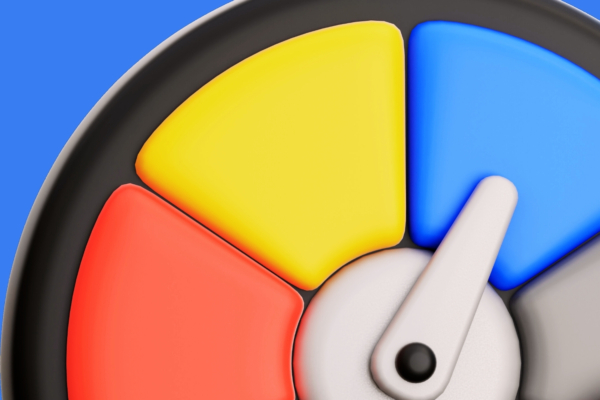
8 Smart Ways to Use Your Credit Card
You might be familiar with the argument against credit cards. Some warn that they are an easy way to use money irresponsibly and fall into debt. Others may say that they allow you to spend money that you don’t have and high interest rates lead to financial ruin.
For some, this is a harsh reality. More than 191 million Americans have a credit card, with the average card holder having more than two cards. The average household credit card debt is $5,315. However, though irresponsible use of credit cards can lead to trouble, they are not inherently bad.
In fact, credit cards can be a beneficial financial tool— if you’re smart when using them.
Benefits to Smart Credit Card Use
You might be thinking, “If a credit card has the potential to get me into debt, why use it at all?” But when you use your credit card wisely, you can take advantage of several benefits:
- They can help you build good credit: Careful use of a credit card is one of the easiest ways to build your credit score.
- They often have rewards: Points, miles, cash back— oh my! Credit cards nowadays often come with some sort of rewards system that gives you perks or cash when you use the card.
- You are safeguarded against fraud: Hundreds of thousands people have their financial information and accounts compromised each year. With a credit account, you won’t be out any money if your card is used fraudulently. Instead you’ll simply notify the credit card issuer and they won’t pay for the transactions. Credit card companies can also help you resolve merchant disputes and refund issues.
Credit cards often come with other perks too like rental car insurance, travel insurance, and product warranties. They can also be used to help you keep track of monthly spending and keep your budget on track. For these reasons and more, many financial experts agree that healthy credit card use is actually a good thing.
How to Use Your Credit Card
Being smart about how you use credit cards makes your financial life easier. Here are a few good credit card habits to get into.
1. Think about your credit card as what it really is: a loan.
Some people fall into the trap of viewing purchases made with their credit cards as “free money”, when that’s actually far from the truth. If you pay your cards off every month (which we strongly recommend!), you can use your cards just like cash. But if you’re keeping a balance month to month without paying it off, it’s better to be much more cautious. Before you make a purchase with your credit card, ask yourself, “Would I take out a loan for this?” If the answer is no, you probably shouldn’t be charging it.
2. Set a goal of paying off your balance each month.
With interest rates often exceeding 20%, it doesn’t take long for your balance to double due to interest alone. While credit card issuers make it easy to only pay the minimum balance, it’s important to pay off the entire balance each month.
To calculate the true cost of buying something with credit and not paying it off right away, use a payoff calculator to see how much you’d spend in interest over time. If you don’t have the cash on hand to make a payment in full, seeing the true cost may quickly take the shine off that “must have” purchase.
3. Ensure you never skip a payment.
In addition to racking up interest, late credit card payments can trigger late fees and higher-than-normal interest rates. Even worse, they show up on your credit report and negatively affect your credit score, which can hurt your chances of getting approved for a loan in the future.
Due dates can sneak up on you— even if you have every intention of paying the balance in full. The best way to ensure that you pay your bill on time is to enroll in autopay and link your checking account so that your monthly balance is automatically paid off every month.
However, even if you enroll in autopay, it’s still good practice to check in on your bill payments every month. If you change addresses or bank accounts, be sure to update your information and re-enroll in autopay if necessary.
4. Keep your credit card number and the issuer’s customer service number in a safe place at home.
If your card is lost or stolen, you’ll need to contact your credit card provider immediately to cancel the card and report any fraudulent activity. Keeping the customer service number and your credit card information on hand in a safe place will come in handy.
5. Review your credit card statement each month and report any discrepancies immediately.
Even the most careful person can become a victim of fraud. Keeping a close eye on your monthly statements will help you quickly catch suspicious activity. Better yet, most credit card companies have apps that allow you to track purchases in real time, pay your bills, or contact customer service. Download the app to keep an even closer eye on your account.
6. Make the most out of rewards.
If your credit card offers rewards, look into what you can do to take full advantage of them. Start by selecting a credit card that gives you rewards you’ll use the most. For instance, if you are a frequent flier, you’ll likely benefit from a travel credit card that gives you airline miles with each purchase. Researching and comparing credit cards is a great way to find a card that will work for you.
While rewards and perks can be great, it’s also important to not get too caught up in them. Say your card offers a large cashback bonus if you spend $5,000 in the first three months. If you can’t afford to pay back the $5,000, the reward probably isn’t worth it. You’ll end up paying far more in interest trying to repay your balance.
7. Keep an eye on your credit utilization rate.
Did you know that paying your bills on time isn’t the only thing that credit bureaus take into consideration when it comes to your credit score? Your credit utilization rate, among other things, is also a factor.
Your credit utilization ratio compares how much revolving credit you use to your card’s credit limit. This number indicates if a borrower can manage credit or if they are overextended. In some credit scoring models, utilization ratios can impact as much as 30% of your total credit score.
As a rule of thumb, experts recommend keeping both your per-card and overall credit card utilization rate under 30%.
8. Turn your credit card into a budgeting tool.
Want to make smart use of a credit card? Use it as a budgeting tool. Your credit account can be a great way to categorize your expenses and track spending in certain areas.
For instance, if you’ve made it a goal to wrangle in your monthly dining out expenses, using a designated credit card for these purchases can help you track restaurant expenses.
The Bottom Line
Using a credit card responsibly takes some self-discipline. But when you use it right and pay off your balance monthly, it can be a great financial tool with many unique rewards and perks.
Want to Stay Ahead of Your Interest?
Enjoy an introductory low interest rate period with a Visa® Platinum Card from Amplify Credit Union.


